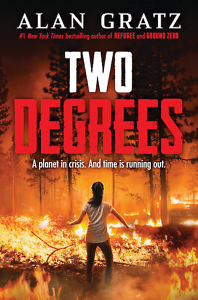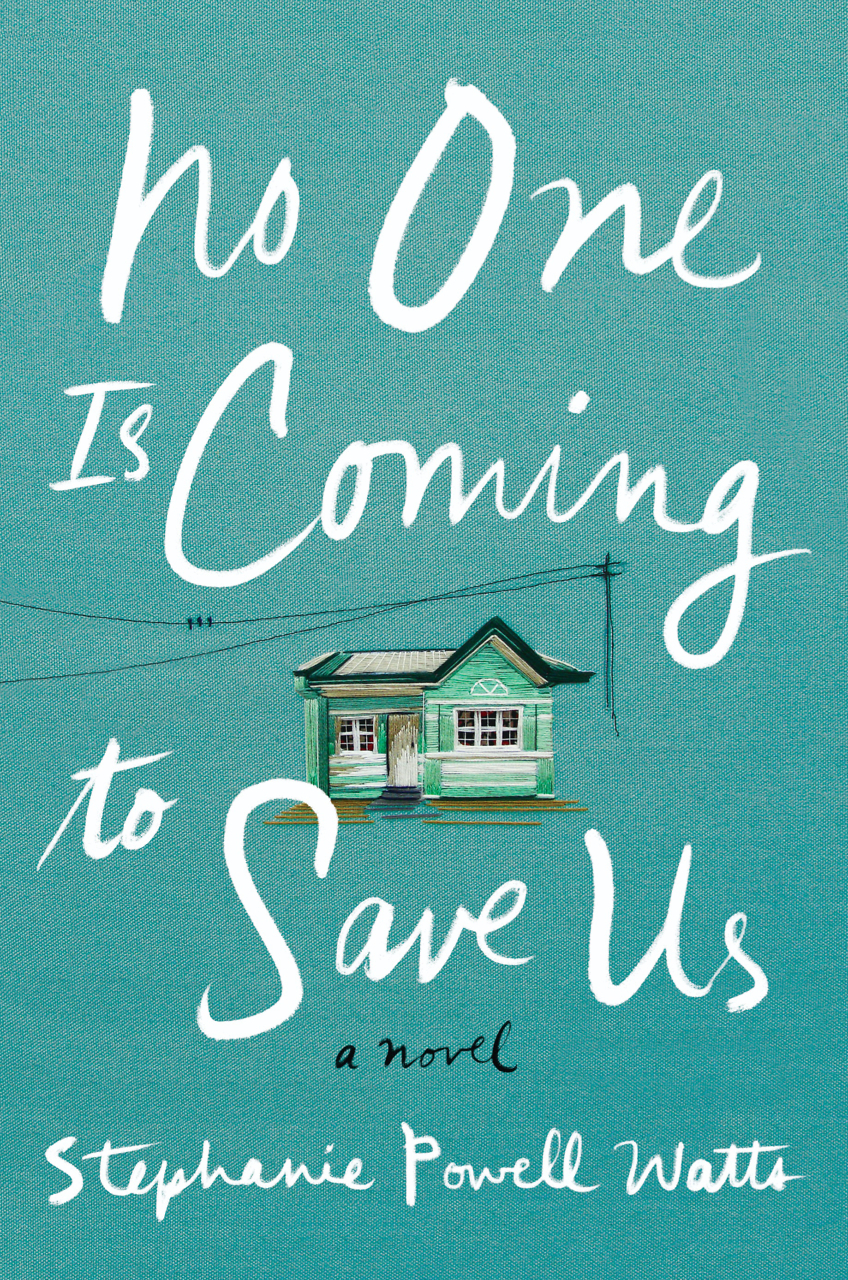Everybody Has to Do Something
The effects of climate change endanger the lives of four teens
“Nature can take care of itself,” proclaims a climate change denier in Alan Gratz’s latest middle-grade thriller, Two Degrees. But by the end of the story, Gratz and his four teenage protagonists have made a strong case to readers that the opposite is true.

As Gratz explains, human influence on climate change began with the dawn of the industrial era. Since that time, Earth’s temperature has risen more than a degree. If human-caused climate change hits two degrees, numerous climate disasters are predicted. Using three alternating narratives, Gratz shows young readers what those relentless phenomena could look like on the ground, in the lives of children just like them.
Akira lives in the Sierra Nevada mountains of California. She and her dad love to visit a grove of giant sequoia trees located nearby. But on a hot, dry, and windy day in October, they suddenly find themselves caught in a raging wildfire. In their desperate escape from the flames, they partner with others who cross their path, helping one another through a terrifying inferno that destroys everything it touches: “A burning house looked to Akira like a glowing skull, its broken windows hollow like eye sockets, its exterior walls black against the bright orange fire that filled it. It felt like they were driving through a movie about the end of the world.” Separated from her father at one point, Akira must rely on everything she has been taught about survival in the forest when her familiar world turns alien and deadly.
 Meanwhile, outside the small Canadian town of Churchill, Manitoba, two young boys are locked in a life-and-death struggle with a hungry polar bear. One thousand miles south of the Arctic Circle, it’s -16 degrees Celsius, but best friends George and Owen are unfazed by the temperature and loaded down with supplies as they take off on a snowmobile, headed for a remote fishing cabin. Owen knows a lot about polar bear behavior since his parents run a local tour company. Churchill is “a town with more polar bears than people,” and tourists come to catch a glimpse of the animals. But melting glaciers and habitat loss are driving them closer to human populations, while leaving them hungrier and more dangerous than ever before. And when the boys stop for a bathroom break and Owen spots a baby bear, he is distracted for a moment by its cute behavior. That’s when the mama bear strikes. Wounded but resolute, George and Owen are tested to their limits when another bear identifies them as a convenient meal and they must depend on each other to live.
Meanwhile, outside the small Canadian town of Churchill, Manitoba, two young boys are locked in a life-and-death struggle with a hungry polar bear. One thousand miles south of the Arctic Circle, it’s -16 degrees Celsius, but best friends George and Owen are unfazed by the temperature and loaded down with supplies as they take off on a snowmobile, headed for a remote fishing cabin. Owen knows a lot about polar bear behavior since his parents run a local tour company. Churchill is “a town with more polar bears than people,” and tourists come to catch a glimpse of the animals. But melting glaciers and habitat loss are driving them closer to human populations, while leaving them hungrier and more dangerous than ever before. And when the boys stop for a bathroom break and Owen spots a baby bear, he is distracted for a moment by its cute behavior. That’s when the mama bear strikes. Wounded but resolute, George and Owen are tested to their limits when another bear identifies them as a convenient meal and they must depend on each other to live.
In Miami, meteorology buff Natalie has long worried about “The Big One. The giant mythical hurricane that would destroy the entire southeast coast of Florida.” Natalie and her mom are used to weathering hurricanes and know what to do to protect themselves and their home. But over the last few years, the storms have grown more frequent and more vicious. When the giant hurricane finally hits, all Natalie’s fears are realized, and it isn’t long before she is swept away by the floodwaters, with only her neighbor’s ill-tempered little dog for a companion. As she comes up for air, literally, she is met by other victims of the surging waters, who aid one another for a little while, before their makeshift protections are once again upended by the violent and unpredictable storm surge. Natalie will need tremendous strength and courage and a great deal of luck to find her way home.
Alan Gratz is a master of this genre, and Two Degrees is one of his best. He keeps readers on the edge of their seats through nonstop action, while creating realistic characters with sympathetic backstories, complicated feelings, and lots of heart. Just as Gratz points out that human behavior makes climate change worse, he also reminds us that humans are the only hope for making things better — even when problems seem unsolvable. As Natalie’s friend Patience says, “Nobody has to do everything, but everybody has to do something.” With Two Degrees, Alan Gratz has done something truly remarkable.

Tina Chambers has worked as a technical editor at an engineering firm and as an editorial assistant at Peachtree Publishers, where she worked on books by Erskine Caldwell, Will Campbell, and Ferrol Sams, to name a few. She lives in Chattanooga.


